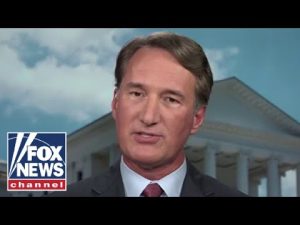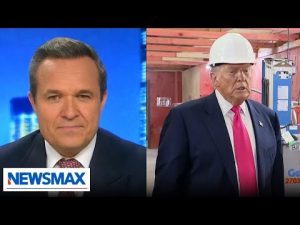The recent commentary surrounding Donald Trump’s economic policies reflects a deep-seated partisanship that seems to cloud the judgment of many critics. While some voices of despair drone on about potential doom as a result of Trump’s tariffs, the facts paint a different picture. Critics argue that the tariffs will result in economic downturns, citing projections of reduced GDP growth and adverse consumer impacts. Experts estimate that long-term GDP may fall by about 6%, with households facing significant financial losses—a roughly $3,800 impact per household in the short term.
The narrative surrounding Trump’s tariffs has sometimes included warnings of economic harm, and studies project that retaliatory tariffs could lead to a $132 billion revenue reduction and a 0.2% decrease in GDP. These challenges have fuelled the criticism, suggesting a more cautious view of the policy’s effectiveness. Economic indicators like the Dow have indeed experienced growth, but these gains should not overshadow the potential broader negative effects predicted by various analyses.
Critics highlight that the ‘pain’ of these tariffs will likely impact consumers significantly, with disproportionate effects on lower-income families. The timing and extent of the economic challenges are particularly crucial as elections approach. Nonetheless, some argue that negativity in part stems from political opposition to Trump’s presidency rather than exclusively from economic realities.
It’s important to recognize that the stock market can show strong performance due to a variety of factors beyond trade policies. While the Dow index might reach new heights, analyses suggest specific economic areas may face downturns, countering overly optimistic success narratives with evidence of broader economic risks.
The cycle of skepticism facing Trump’s policies reflects the complexity of economic predictions and political rhetoric. In 2016, predictions of economic distress after Trump’s election contrasted with stock market milestones. However, under his leadership again, while some records continue to be broken, economic studies underline potential pitfalls that defy purely positive interpretations.
Recognizing the resilience of the American economy and objectively acknowledging policy outcomes is essential. Rather than attributing skepticism solely to partisan bias, it is crucial to balance success recognition with caution informed by economic analysis. America is navigating complex economic conditions, and constructive criticism should inform discussions about the impact of current administration policies. Thus, any celebration of good numbers should be tempered with an understanding of the existing challenges, all while seeking clarity beyond partisan perspectives.







